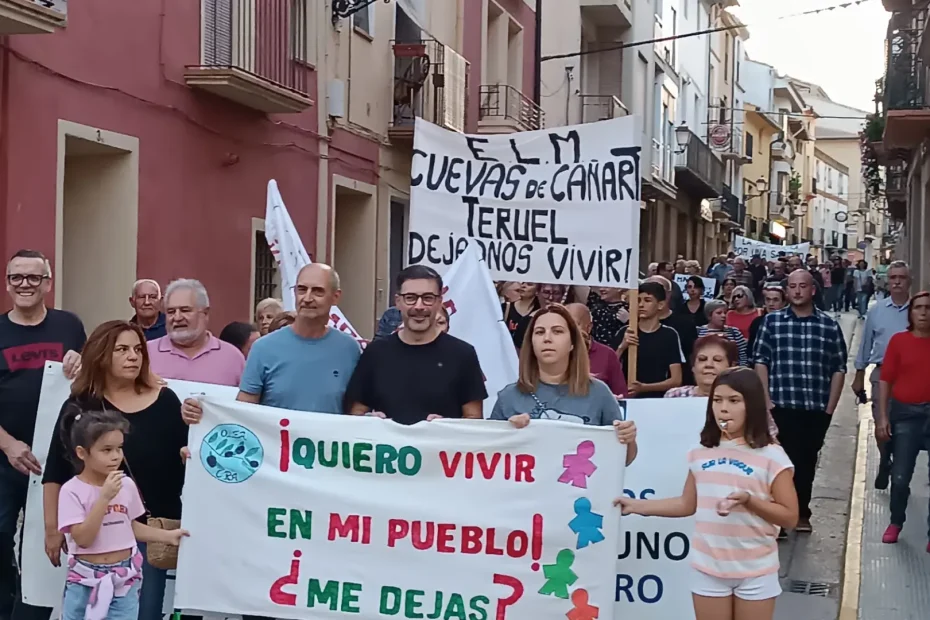The crisis that primary care is going through is worsening and the lack of doctors is affecting rural areas, where many places have been left deserted. In the last centralized appeal, 62% of temporary contracts in health centers were not covered, especially for continuing care. Given this situation, there are several Aragonese towns that have taken to the streets in recent days to texpress your discomfort and demand an urgent solution. The Department of Health recognizes that work is being done to alleviate the personnel deficit, although they insist that the problem is not exclusive to Aragon. The medical professionals themselves argue that “poor planning and reorganization” of human resources has been going on since the beginning of the century and the outlook is not hopeful, since the lack of generational change will continue, at least, during this decade.
The manager of the Aragonese Health Service, Ana Castillo, points out that Aragonese healthcare “is not in an extreme situation”: “There are problems in certain health centers and the Medical positions, especially in continuing care, are not attractive, but I want to convey a message of peace of mind to the public. Practically 90% of the staff is covered, we have done more primary care consultations and health care is assured in all municipalities and to the entire population of Aragon.”
The demand for doctors increases and, to face this scenario, as Castillo explains, a “active search” of professionals in other autonomous communities. There is also a commitment to retain and attract newly trained physicians to the region, for which a loyalty agreement was approved, which offers economic, employment, training and social benefits.
“We are with open arms”
Health is carrying out, he explains, an “intensive search for professionals outside our autonomous community”: “We are with open arms to all primary care professionals who want to come to work in Aragon, not just those who have finished the mir this year but to those who have been away for a while and want to come to work here or want to return to their homeland, especially in rural areas. we help them look for housinga form of transportation, we give them initial training so that they know our computer system…”.
Regarding the rural population, the Department has initiated contacts with the Aragonese Federation of Municipalities, Regions and Provinces to promote collaboration with local administration in improving accessibility to clinics and health centers, with the philosophy of optimizing resources. The Minister of Health himself, José Luis Bancalero, acknowledged this week that he has held meetings with regional and municipal officials because “they have means of transport that are half occupied.” “Why can’t you transport a patient and bring him closer to his reference center “The day you don’t have an office in your town?” he asks.
From the Official College of Physicians of Zaragoza, its president, Javier García Tirado, recognizes the need to carry out “the necessary organizational and legislative changes that allow job offers to be made with substantially better contracts, in addition to optimizing the distribution of available human resources through the already old demand for the reform of the health map“.
An issue defended by José Manuel Cucalón, member of rural primary care of the collegiate institution, for whom “the so-called deficit of human resources is not only a lack of family doctors, but also a poor organization and reorganization of personnel.” “. Recognize that poor planning has been going on for years “despite the fact that everyone knew that around 2020 the ‘baby boom’ generation was going to start retiring”, especially in rural areas. And generational change is not assured.
Furthermore, he adds: “The life expectancy of young people is different from ours.” From there the difficulty in filling positions in rural areassomething worrying taking into account the geographical dispersion, depopulation and aging of the Community. “And the working conditions do not help to attract professionals either,” he emphasizes.
All these circumstances, he indicates, aggravate “the enormous crisis of Family and Community Medicine”which will last, he predicts, until 2028 or 2030, “when it is estimated that future generations will equal those who retire.” “It is a problem that has been going on for years,” he says, “which is why I would ask our politicians for education, reflection and determination to make appropriate decisions.
